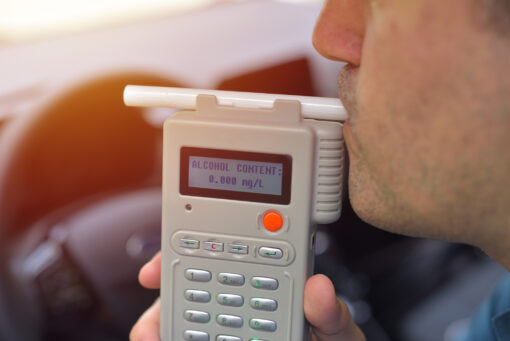In the complex realm of DUI laws and the assessment of intoxication, understanding how long alcohol stays on one’s breath is pivotal. This duration can significantly influence encounters with law enforcement and the subsequent legal processes.
Here, we explore the persistence of alcohol odor and its implications for DUI charges, providing insights for those who might find themselves in such situations. Contact Chambers Law Firm at 714-760-4088 if you require a free legal consultation.
Alcohol’s Lingering Scent: A Preliminary Indicator
The scent of alcohol on one’s breath can linger for up to 12 to 24 hours following the last drink. This duration, however, varies among individuals due to differences in body types and the metabolism of alcohol. It’s important to recognize that the mere presence of an alcohol odor does not directly equate to a DUI arrest. Law enforcement officers require additional evidence to establish intoxication, which could include failed breathalyzer tests, compromised field sobriety tests, or the presence of open alcohol containers in the vehicle.
Misconceptions Surrounding Breath Odor and Breathalyzer Results
Contrary to common belief, the smell of alcohol on one’s breath does not guarantee a failed breathalyzer test. Breathalyzer devices measure the blood alcohol concentration (BAC) by analyzing alcohol in the deep lung air, offering an estimation of blood alcohol levels. A discernible alcohol odor does not necessarily indicate a BAC level above the legal limit.
The Role of Breath Odor in DUI Arrests
While the smell of alcohol can raise suspicion, it alone is insufficient for a DUI arrest. Police officers must gather concrete evidence of impaired driving before making an arrest. This evidence might stem from the driver’s behavior, performance on field sobriety tests, or breathalyzer results. The initial detection of alcohol odor could prompt further investigation into potential DUI offenses.
Understanding Alcohol Metabolism and Detection
Alcohol metabolism involves its absorption through the stomach and small intestine linings into the bloodstream, eventually reaching the liver for processing. Factors such as drinking on an empty stomach or binge drinking can accelerate alcohol absorption. Conversely, eating food, drinking water, and pacing drink consumption can mitigate absorption rates. These variables influence the detectability of alcohol on one’s breath and in the bloodstream.
The Critical Role of DUI Defense Attorneys
Facing DUI charges is a serious matter with potential consequences including jail time, license suspension, and significant fines. Consulting a skilled DUI defense attorney is crucial for anyone arrested under suspicion of DUI. A competent lawyer can navigate the complexities of DUI law, challenging the prosecution’s evidence and advocating for reduced penalties or case dismissal.
In DUI cases, the expertise of a defense attorney from Chambers Law Firm can be invaluable. Whether contesting the validity of breathalyzer results or arguing against the subjective interpretation of field sobriety tests, a qualified lawyer can make a significant difference in the outcome of a case. For those in need of legal assistance, Chambers Law Firm offers consultations to discuss defense strategies and provide legal advice tailored to individual cases. Contact Chambers Law Firm at 714-760-4088 to explore your legal options and ensure your rights are protected in the face of DUI charges.





